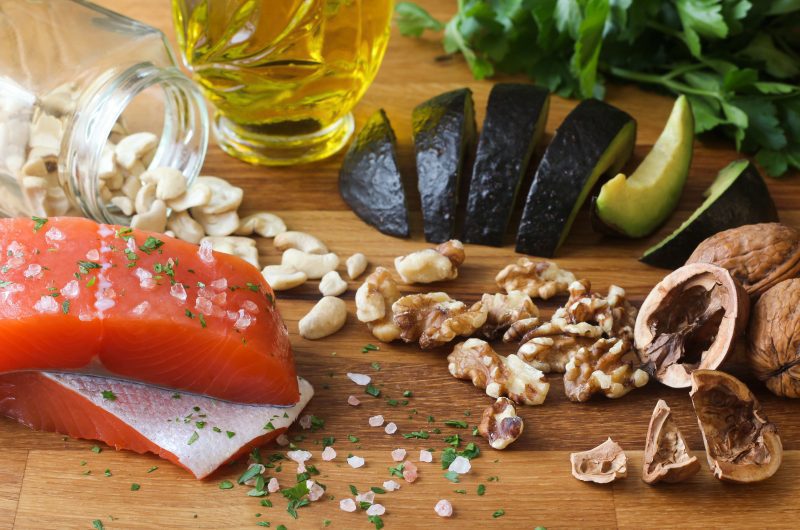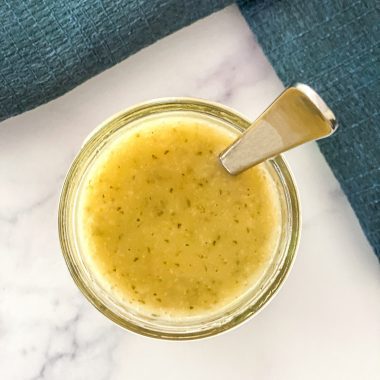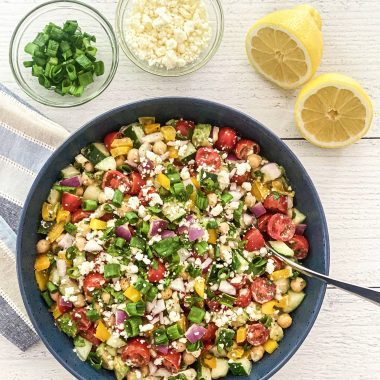From heart disease to diabetes to cancer, chronic (long-lasting) inflammation drives practically every common disease. Luckily, you can control, and even reverse, chronic inflammation by making a few tweaks to your lifestyle. One of the easiest involves simply eating a diet rich in anti-inflammatory foods. It just so happens that salads are one of the absolute best ways to incorporate more of these foods into your diet.
In no particular order, I’ve compiled a list of some of the best anti-inflammatory salad toppers that you can start eating right away.
Leafy Green Vegetables
Since we tend to think of salads from the “green” up, leafy greens are the easiest ingredients to include in your bowl. Whether kale, spinach or broccoli, these veggies collectively house a cocktail of antioxidants and phytonutrients known to reduce inflammation. Bear in mind that the darker the leaves, the more anti-inflammatory the greens. Notably, darker leafy greens house the most fiber and vitamin K, which both fight inflammation and support heart health.
Extra-Virgin Olive Oil
Here at That Salad Lady, extra-virgin olive oil (EVOO) is a key ingredient in all our salad dressings. There’s a reason for that. A powerhouse anti-inflammatory food, EVOO is packed with disease-fighting antioxidants, healthy monounsaturated fats and the fat-soluble vitamins E and K. By eating just half a tablespoon of EVOO a day as part of a balanced diet, you can reduce your blood pressure, improve your cholesterol levels and lower your risk of heart disease.
Berries
In and of themselves, berries can bring bittersweet flavors and a whole lot of anti-inflammatory goodness to practically any salad bowl. From blueberries and blackberries, to strawberries and raspberries, they’re all naturally high in vitamin C, flavonoids and other antioxidants. These unique nutritional qualities make berries especially beneficial in both the prevention and treatment of inflammation-linked chronic conditions like heart disease, diabetes and cancer.
Nuts and Seeds
Whether walnuts, almonds, pecans, chia seeds or flaxseeds, nuts and seeds make great salad toppers. Besides being among the most versatile sources of health-promoting micronutrients and antioxidants, they’re also some of the strongest anti-inflammatory foods on this list. Due to a good balance of fiber, fat and protein, regularly eating nuts and seeds helps lower cholesterol, stabilize blood sugar and burn fat. A quarter cup a day is all you need to reap these benefits.
Tomatoes
Next to leafy greens, tomatoes are one of the most common salad toppers on this list. Though typically considered veggies, tomatoes are actually fruits – technically, I could’ve grouped them with berries. Anyhow, whether cherry, roma or vine, they’re all naturally sweet and packed full of anti-inflammatory, heart-healthy, cancer-fighting nutrients. Tomatoes are especially rich in antioxidants like vitamin C, vitamin E and carotenoids, which give them their red colors.
Bell Peppers
Among the healthiest, tastiest salad toppers, bell peppers are well-known for their superior nutrition profile and potent anti-inflammatory capabilities. Of the many colors sold, green peppers are generally the lowest in nutrients as they’re prematurely picked. But whether yellow, orange, purple or red (the ripest and best), colored bell pepper varieties each contain a dense cocktail of potent antioxidants including those disease-fighting carotenoids.
Oily Fish
Also called “fatty fish,” oily fish varieties are by far the most nutritious protein sources around. They also happen to be anti-inflammatory food staples. Whether salmon, trout, tuna, sardines or anchovies, oily fish are excellent sources of heart-healthy omega-3s, energy-boosting B vitamins and bone-building vitamin D, which your body needs to absorb and use calcium. Selenium, a powerful immunity-boosting antioxidant, is also widely present in oily fish.
Avocado
Due to its unique nutritional composition, eating avocado alone can curb inflammation. Also classified as a berry, this super savory fruit is largely comprised of healthy fats with over 50% being monounsaturated. Avocado is also packed full of fiber, vitamins and disease-fighting antioxidants. The greenest portion of the fruit (closest to the skin) is the richest in antioxidants. To reap the full anti-inflammatory potential of avocado, scrape its peel clean before tossing it.
In addition to reducing your overall risk of chronic inflammation, regularly eating these anti-inflammatory salad toppers will inherently lower your risk of inflammation-linked diseases. As you fine-tune your diet, make sure you also carve out some time for physical activity, sleep and self-care. Though less discussed, inactivity, poor sleep hygiene and unmanaged stress can also drive chronic inflammation and related diseases.






